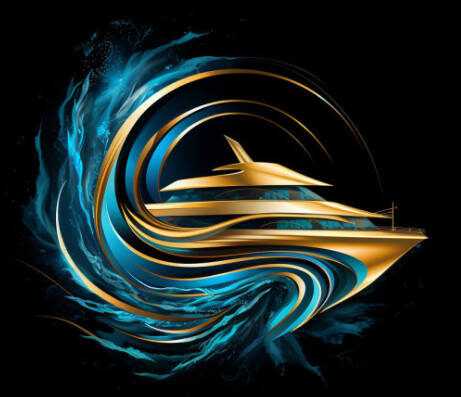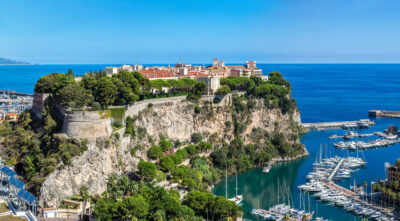As the demand for more sustainable, eco-friendly travel rises, luxury yachts are turning to innovative fuel alternatives to reduce their environmental impact without compromising on performance or luxury. Traditional diesel engines are increasingly being replaced or supplemented by cleaner, more efficient fuel sources, which not only reduce emissions but also promise a quieter and more enjoyable experience on the water. Here’s a look at some of the top fuel alternatives that are reshaping the luxury yacht industry.
1. 🔋 Electric and Hybrid Propulsion Systems
- Overview: Electric and hybrid propulsion systems offer a cleaner, quieter way to power luxury yachts, blending the best of traditional and electric technologies. Hybrid systems combine diesel engines with electric motors, allowing seamless switching between power sources or simultaneous use, depending on travel needs.
- Benefits: Hybrid yachts reduce fuel consumption, cut down on CO₂ emissions, and allow for nearly silent cruising in electric-only mode, creating a tranquil, more immersive experience, especially in protected areas or harbors.
- Example: The Feadship Savannah is a high-end hybrid superyacht that combines a diesel engine with three electric generators, delivering 30% greater fuel efficiency compared to conventional yachts. When needed, it can run entirely on electric power, making it a great choice for eco-friendly luxury cruising.
- Pro Tip: Electric and hybrid systems are particularly well-suited for low-speed cruising, allowing guests to enjoy a peaceful journey with reduced vibrations and noise.
2. 🌱 Biofuel Blends
- Overview: Biofuels are produced from renewable resources like plant oils, algae, and even recycled cooking oil. When blended with traditional marine diesel, biofuels can reduce greenhouse gas emissions by a significant margin, making them an eco-friendly option for luxury yacht owners looking to lessen their carbon footprint.
- Benefits: Biofuel blends are compatible with existing diesel engines, making them easy to adopt without the need for engine modifications. They also produce fewer pollutants and help offset the carbon emissions associated with marine travel.
- Example: Sunreef Yachts, a luxury yacht builder, is now offering biofuel compatibility in their new yacht models. Their biofuel-powered yachts promise both efficiency and reduced environmental impact, allowing owners to travel sustainably without sacrificing luxury.
- Pro Tip: Yacht owners can try a mix of traditional and biofuels to transition to greener practices gradually, balancing cost, accessibility, and performance.
3. 💧 Hydrogen Fuel Cells
- Overview: Hydrogen fuel cells are an exciting, zero-emission alternative for powering yachts, producing only water and heat as byproducts. Hydrogen fuel cells convert hydrogen into electricity, which can be used to power electric motors, offering a clean and sustainable solution for luxury yachting.
- Benefits: Hydrogen fuel cells provide quiet and emission-free operation, perfect for environmentally sensitive areas. They also allow yachts to achieve extended cruising ranges without the need for traditional fuel, making them ideal for longer journeys with a reduced environmental impact.
- Example: The Aqua by Sinot Yacht Architecture & Design is a 370-foot hydrogen-powered superyacht concept unveiled in 2019. Designed to run on liquefied hydrogen stored at -423°F, Aqua produces only water as waste, offering a groundbreaking vision for zero-emission luxury yachting.
- Pro Tip: While hydrogen infrastructure is still developing, advancements in hydrogen storage and refueling options are making this a more viable choice for eco-conscious yacht owners.
4. 🌊 LNG (Liquefied Natural Gas)
- Overview: LNG, or Liquefied Natural Gas, is another cleaner alternative to diesel for luxury yachts. LNG produces significantly fewer CO₂ and sulfur emissions compared to traditional marine fuels, helping yachts comply with stringent emission regulations, especially in emission control areas (ECAs).
- Benefits: LNG is highly efficient and offers a longer cruising range than diesel, with fewer emissions of harmful pollutants like sulfur oxides (SOx) and nitrogen oxides (NOx). Additionally, LNG engines run more quietly and with less vibration, enhancing the onboard experience.
- Example: The Ariane de Rothschild superyacht by Damen Yachting is designed to run on LNG. This eco-friendly vessel showcases how LNG can be integrated into luxury yachts without compromising performance or luxury, setting a new standard for sustainable travel.
- Pro Tip: LNG infrastructure is expanding, particularly in European and American marinas, making it a practical choice for yacht owners looking for a balance of performance and sustainability.
5. 🌿 Methanol Fuel
- Overview: Methanol is a clean-burning fuel that’s derived from natural gas, biomass, or even carbon dioxide, making it a versatile and low-emission alternative to traditional marine fuels. With relatively low production costs and the ability to reduce harmful pollutants, methanol is gaining attention in the luxury yacht sector.
- Benefits: Methanol fuel produces fewer NOx and SOx emissions than diesel, making it a good option for meeting environmental regulations. It also has the advantage of being liquid at ambient temperature, so it can be stored and handled similarly to traditional fuels, reducing the need for new infrastructure.
- Example: Feadship, a prominent yacht builder, has begun exploring methanol as a viable option for powering luxury yachts. Their recent projects include methanol-compatible designs, aiming for sustainable solutions that meet the highest standards of luxury and performance.
- Pro Tip: Methanol can be used in modified diesel engines, making it easier for yacht owners to transition without a complete engine overhaul.
6. ☀️ Solar Power
- Overview: Solar power is increasingly being used to supplement other energy sources on luxury yachts. While it’s not sufficient to fully power a large yacht, solar panels can provide auxiliary power for lighting, electronics, and other low-energy systems, helping to reduce overall fuel consumption.
- Benefits: Solar power is completely renewable and emission-free, and it offers quiet operation without vibration, ideal for maintaining a tranquil onboard atmosphere. Solar energy can also be stored in batteries for later use, helping to cut down on generator run times.
- Example: The Silent 80 by Silent-Yachts is a solar-powered catamaran that can cruise for extended periods on solar energy alone. Its large solar panel array allows it to operate silently and without emissions in good weather, showcasing the potential of solar in luxury yachting.
- Pro Tip: Solar panels work best for yachts that spend a lot of time in sunny climates, maximizing their power generation potential.
7. 🌬️ Wind-Assisted Propulsion
- Overview: Wind-assisted propulsion involves using sails or high-tech kites to reduce the reliance on fuel, making it a sustainable supplement to traditional engines. With modern designs, even motor yachts can incorporate wind propulsion without compromising luxury or performance.
- Benefits: Wind propulsion reduces fuel consumption, extends cruising range, and lowers emissions, making it ideal for eco-conscious yacht owners. It also offers a more traditional, serene cruising experience, with minimal noise and vibration.
- Example: Black Pearl, a 350-foot sailing yacht by Oceanco, is one of the world’s largest and most eco-friendly superyachts. Equipped with innovative DynaRig sails, it can cross the Atlantic using minimal fuel by harnessing wind power for propulsion.
- Pro Tip: Wind-assisted systems are best for yachts that frequently travel on open waters where they can fully utilize wind power to supplement or replace engine use.
As luxury yachting embraces a more sustainable future, innovative fuel alternatives like electric propulsion, biofuels, hydrogen, and even wind-assisted systems are reshaping the industry. These cutting-edge technologies offer yacht owners a way to enjoy the elegance and freedom of the sea while minimizing environmental impact. Each option has unique benefits, from reducing emissions to enhancing onboard tranquility, making it easier than ever to cruise in style and sustainability. Whether you’re considering a hybrid upgrade or exploring renewable options, these advancements ensure that luxury and eco-consciousness can sail side by side.
Do you have any feedback or additional insights? Please send an email to editor @ yachtsurf.com





